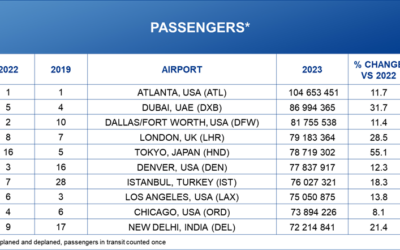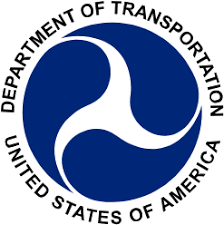The path toward an increase in the cap on Passenger Facility Charges on airline tickets did not get any easier with the Republican sweep in elections this week.
But representatives from the two largest airport trade organizations say they are excited to get to work with the new executive branch, which has loudly expressed support for significant investments in the nation’s infrastructure.
One of President-elect Donald Trump’s campaign promises was a trillion-dollar investment in infrastructure, including airports. He reiterated that the day following his election victory, though he has issued few details on how the plan would be paid for, outside of an emphasis on public-private partnerships.
Kevin Burke, president and CEO of Airports Council International–North America, and Todd Hauptli, president and CEO of the American Association of Airport Executives, say they have a strong case that PFCs can be a vital part of those improvements at airports.
“We expect that a modernized Passenger Facility Charge will play a critical role in narrowing the infrastructure gap in this country, and we look forward to Congress returning to the mindset that prevailed for generations that infrastructure should be differentiated from other spending and that ‘concrete knows no political affiliations,’” Hauptli says.
In addition to Trump’s election, Republicans maintained majorities in the House and Senate. Burke says the organization has put many hours and resources into educating Republican lawmakers on the local nature of PFC funds. He thinks progress has been made, and he’s looking forward to building relationships with newly elected leaders in the coming months.
“I think we’ve come a long way,” he says, adding that Trump’s emphasis on infrastructure improvements only helps the cause. “Infrastructure should always be bipartisan. It affects everyone. In the case of airports, because they are so important to communities, modernizing them and making them competitive should be a slam dunk.”
Others are a bit more skeptical, at least on the PFC front. Stephen Van Beek, director and head of North American Aviation for Steer Davies Gleave, says Republicans have traditionally been and remain a harder sell on PFC reform. He adds that it’s unlikely an increase comes by itself. Its best hope is as part of a larger package of reforms, potentially including the airline industry-supported air traffic control reform, he says.
Van Beek does think a Republican government is more likely to support a corporate air traffic control reform idea, though he acknowledges the proposal most recently forwarded by Congressman Bill Shuster of Pennsylvania still faces opposition even within the House Transportation Committee he chairs.
While privatizing ATC has both bipartisan support and opposition, Airlines For America is looking forward to discussing with Trump the need for NextGen improvements.
“We look forward to working with the Transition Team on strengthening our infrastructure in the sky to meet the nation’s growing demands on the ground,” said A4A President and CEO Nicholas E. Calio. “The current U.S. air traffic control system, while safe, is an inefficient relic of the 1940s. We’re eager to work with President-elect Trump to transform it to reduce delays for the 2.2 million passengers and 50,000 tons of cargo that fly every day, while accommodating future growth and demand for travel and shipping.”
Other potential issues of importance to airports and airlines alike include monitoring any changes to U.S. Customs and Border Protection, Van Beek says. If the focus shifts from restricting entry for security purposes rather than facilitating movement through processing lines, “that’d be a big deal to the whole industry,” he says, as international travel growth has outpaced domestic growth in recent years.
Airlines, Van Beek adds, also will be watching closely as Trump works to change trade agreements, which typically include air service liberalization. If those agreements go away, it could hurt aviation.
“More markets, more competition is good for airports,” Van Beek says. “That’s one people won’t talk about, but it’s a sleeper issue.”
Robert Poole, director of transportation research at the Reason Foundation, says he’s not sure anyone knows what to expect from a Trump presidency. But he cited a line in Trump’s infrastructure position paper to draw on some possibilities: The paper says Trump desires to work with Congress “to modernize our airports and air traffic control systems, end long wait times, and reform the [Federal Aviation Administration] and [Transportation Security Administration], while also ensuring that American travelers are safe from terrorism and other threats.”
That, Poole says, could mean some significant reforms that were considered but not adopted over the last few years may be put back on the table. That could include expanding or liberalizing the airport privatization pilot program, corporatizing the air traffic control system to enable it to issue finance and accelerate NextGen modernization through the issuance of revenue bonds, and enable commercial airports to self-fund major capital improvements by increasing or eliminating the cap on PFCs.
“These are entirely speculations, but these ideas have all been in circulation over the past decade, waiting for an administration willing to shake things up,” Poole says.
On another note, the election ended the congressional career of Congressman John Mica, a Republican from Florida and former chair of the House Aviation Subcommittee. Despite the overall success enjoyed by Republicans Tuesday, the long-time supporter of airports was defeated in his re-election bid, losing to Democrat Stephanie Murphy, a 38-year-old businesswoman and professor.






